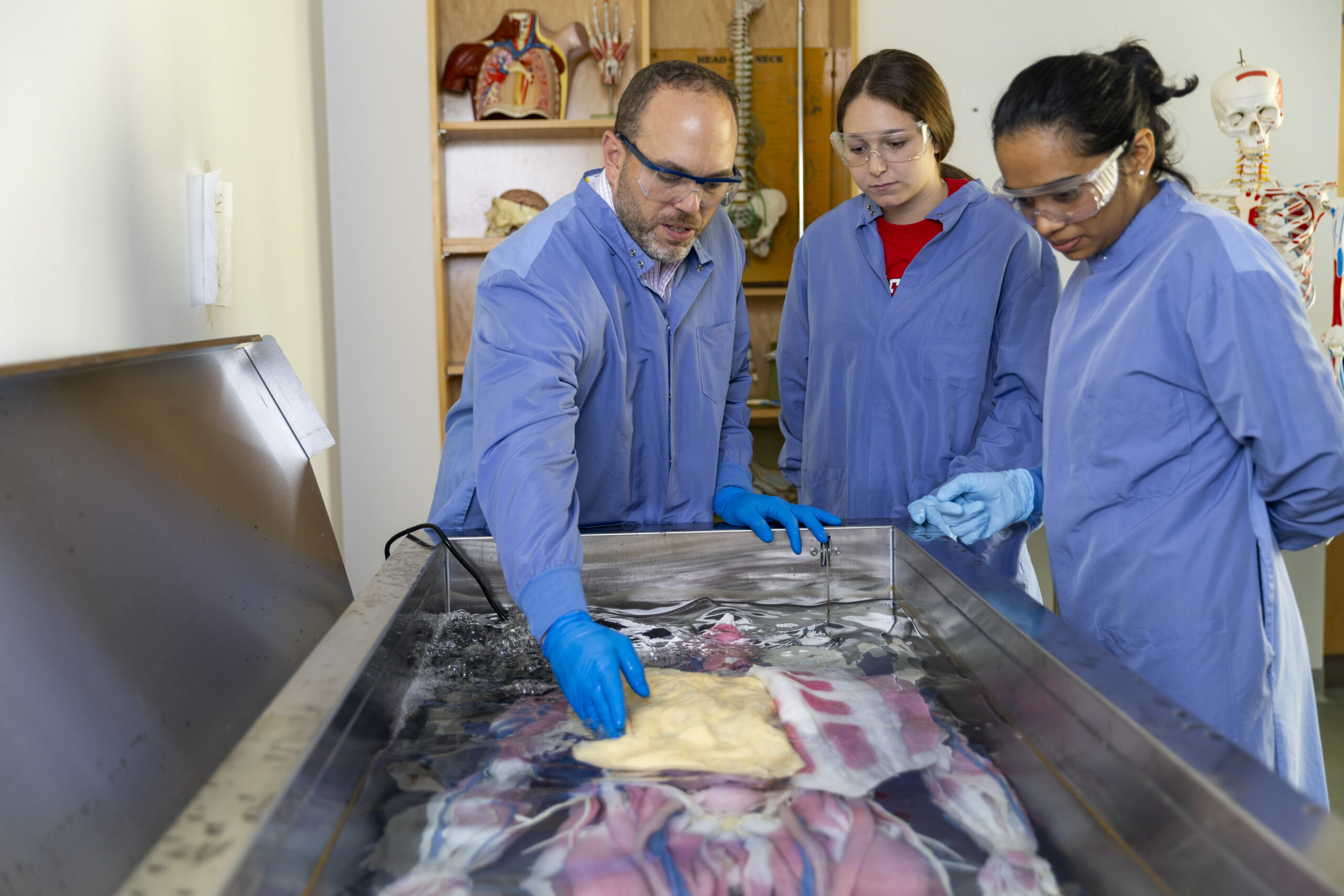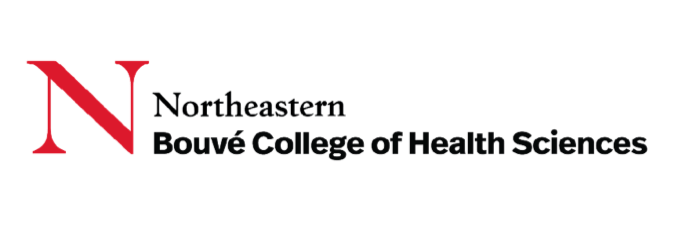We are drawn to the fast-paced field of health sciences for various reasons — be it the industry’s pivotal role as seen during the COVID-19 pandemic, the demand for innovative solutions amid rising chronic diseases and aging populations, or the imperative to address mental health awareness and health inequities.
No matter the cause closest to your heart, Northeastern University’s Bouvé College of Health Sciences welcomes you to find world-changing, life-saving breakthroughs as part of its vibrant community. Located in Boston, the college’s focus extends beyond studying the industry to actively shaping it, ensuring a healthier future for generations to come. Here are five ways the college can empower you to do just that:
Real-world experiences beyond textbooks
Northeastern’s Cooperative Education Program, with roots nearly a century deep, is a pioneering force in higher education. Designed to align with the evolving needs of employers, it equips students with skills identified as crucial for a successful career. For students at Bouvé, this means working in some of the world’s most prestigious healthcare and medical research facilities and being mentored by the best in the industry.
While student Asayl Alzubali has yet to embark on one, the experiences of her peers have significantly enriched her journey. “Their shared real-world applications and case studies have provided me with valuable insights into the health informatics field,” she says. “Learning from their challenges and successes has honed my understanding of practical skills, such as data management and systems implementation, as well as essential soft skills like communication and teamwork.”

Jay Spitulnik spent 10 years of his career focusing on organization development and project management in the healthcare industry. Source: Northeastern University
A powerful network of global alumni
The College’s strong network serves as a dynamic platform for knowledge exchange and collaboration — locally and internationally. “We have an ever-expanding global network of more than 3,000 corporate partners and 230,000 alumni, with a powerful presence in more than 90 countries,” shares Professor Jay Spitulnik, Director of the Master of Science in Health Informatics (MSHI).
This program was designed to nurture information technology competencies that improve healthcare delivery and outcomes. Today, its graduates hold positions in prominent companies as clinical, data, business, technical, application, and security analysts, project managers, Chief Information Officers, Chief Medical Information Officers, and directors.
“To facilitate interaction, our program maintains a private LinkedIn group open to current students, alumni, and current and past instructors,” explains senior lecturer Marie Maloney. “The group provides a space where alumni, students, and instructors can engage in meaningful conversations about the healthcare industry or healthcare informatics and share expertise, seek advice, and build meaningful relationships.”
A commitment to groundbreaking research
Northeastern is at the forefront of innovative research that pushes the boundaries of knowledge. It tackles contemporary challenges and explores novel solutions contributing to the evolution of globally-used practices. Those interested in contributing to pharmaceutical advancements will find everything they’re looking for and more at the School of Pharmacy and Pharmaceutical Sciences, which offers a range of degree programs.
“By the time our students graduate, they have their names on papers,” says Assistant Professor Leigh Plant. “They’ve made a really valuable contribution, and I know as a professor or a professional scientist that I can rely on this person as a member of my team.”
Benefit from expert mentorship
Bouvé College’s faculty isn’t just composed of educators; they are industry leaders, experts, and thought catalysts. They hold a wealth of knowledge and insights. The best part? Whether you choose on-campus or online study, they can be your mentors.

Senior Lecturer Marie Maloney doubles as the chief executive officer of AEGIS Informatics in Rhode Island. Source: Northeastern University
For example, the Master of Science in Applied Psychology (MSAP) program — a route designed to strengthen students’ understanding of psychology and clarify their interest in the field in preparation for doctoral-level training or employment — is offered in both full-time and part-time formats.
“However, all students benefit from instruction from our faculty, who are world-class experts in their fields,” says Associate Professor Christie Rizzo. “Students also benefit from personalized advising to help sharpen their interests and career goals and prepare them for their next steps.”
A diverse student body
Diversity is more than a buzzword at Northeastern; it’s a celebration of varied perspectives, harnessed to create a learning environment that reflects the complex and interconnected nature of global healthcare.
Alzubali describes her peers as the “cornerstone” of her Northeastern experience. “Engaging with students from various cultural, geographical, and professional backgrounds has provided me with a more global perspective on health informatics,” she says.
Bouvé College offers various initiatives to keep this community connected. Affinity Groups celebrate host engaging events. Cultural Centers unite individuals from many backgrounds. The Office of Global Services supports over 20,000 international students with immigration, academic, and employment issues. Diversity, Equity, And Inclusion student organizations enhance connections for underrepresented students, while specialized communities, like the Health Informatics Graduate Society, focus on collaboration within specific disciplines.
As learners’ needs evolve, so will this lineup. “We are committed to creating learning environments in which all students’ prior experience is respected, validated, and welcomed,” says Maloney, who is also Associate Director of the MSHI program. “These are the basis for enriching the educational climate and increasing the transferable knowledge and skills our students develop,”
Follow Northeastern University’s Bouvé College of Health Sciences on Facebook, Instagram, X, LinkedIn, YouTube and TikTok











